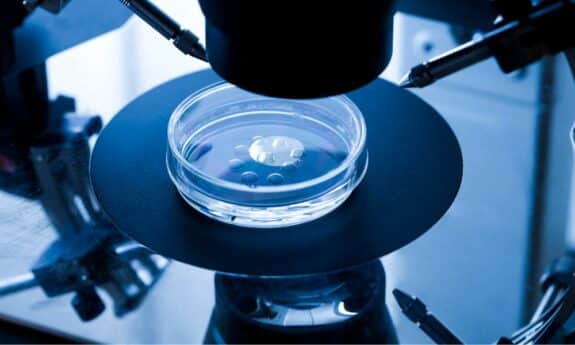In a groundbreaking move, Melanie Boivin has donated her eggs to her daughter, who is unable to conceive due to Turner’s syndrome, a genetic condition. Boivin’s eggs will be preserved until her daughter, Flavie, reaches adulthood and chooses to undergo in-vitro fertilization.
This means that if Flavie decides to become pregnant, she will be giving birth to her own biological sister, while Boivin will simultaneously become both a mother and a grandmother.
While some ethicists find this scenario unsettling, Boivin sees her donation as an act of love. She compares it to donating a kidney, stating that if her child had needed one, she would have given it without question.
Flavie’s Turner’s syndrome was discovered when she failed to grow properly. This condition affects approximately one in every 2,000 live births, causing an incomplete or missing X chromosome and resulting in infertility.
Boivin reached out to the McGill University Health Centre after attending a fertility conference in Ottawa. Seang Lin Tan, the director of the McGill Reproductive Centre, who previously established an egg-freezing program for cancer patients, took Boivin on as a patient.
Notably, the ethical implications of mother-to-daughter egg donation are a matter of debate. Tan acknowledges the complexity of the issue and sought special clinical consideration from the ethics committee.
Ethicist Margaret Somerville argues that reproductive technologies need to consider the consent of the unborn child. She suggests that giving birth to one’s own sibling disrupts the natural course of life’s transitions.
Despite the concerns regarding the ethical nature of this arrangement, it is clear that Boivin’s motivation is to ensure her daughter’s ability to experience life as other women do.
While societal acceptance may currently be a challenge, Boivin’s gesture stems from a place of genuine care and compassion.
SOURCE: CANADA.COM
Cstock







